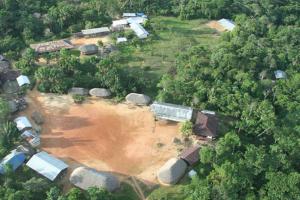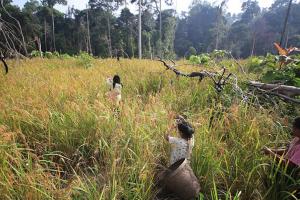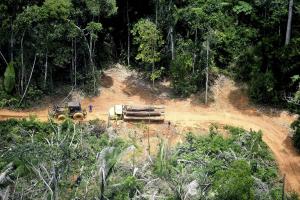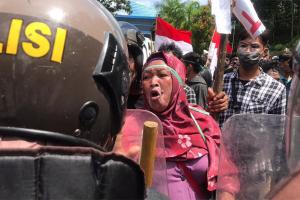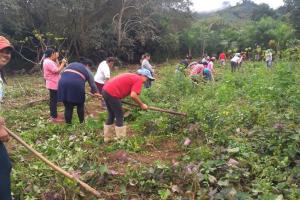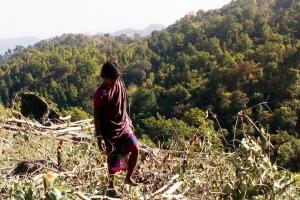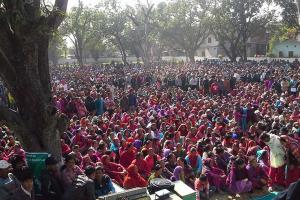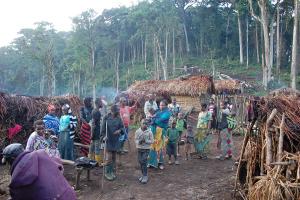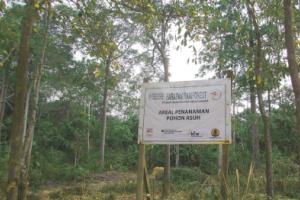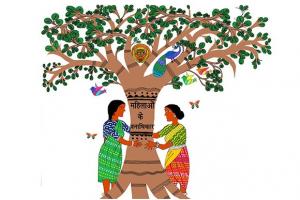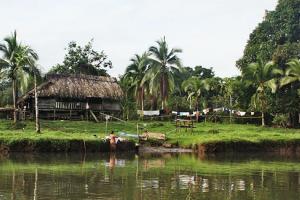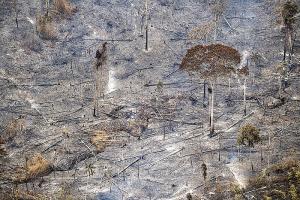Struggles for the Forests
When corporations destroy forests, or restrict or even prohibit access to forest peoples' territories, they place communities' ways of life and their very existence at risk. WRM supports forest peoples' struggles to defend their territories, and their right to decide how to live, and how to use the forests they depend on.
Most governments, NGOs and corporations are promoting more Protected Areas and conservation areas around the world. But what does conservation mean? Marlon Santi of the Kichwa people of Sarayaku explains to us what the Amazonian peoples of Ecuador consider to be conservation.
The approval of a road construction inside the first Ecosystem Restoration Concession in Indonesia puts in evidence the inherent contradictions of such concessions. (Available in Indonesian)
From its first day in office, the government led by Jair Bolsonaro has been trying to undermine the constitutional rights of Indigenous Peoples and quilombola communities in Brazil. WRM spoke with the organization CIMI in the Western Amazon.
This article highlights four trends that evidence how the mining industry continues to benefit from the Covid-19 pandemic while continuing its destruction throughout the archipelago. While corporate-oligarchs are hijacking democracy by perpetuating emergencies, a new dictatorship is being installed under the flag of mining capitalism. (Available in Indonesian).
With the Covid-19 crisis, the initiatives of movements and collectives based on feminist economics have gained strength. Feminist economics leads us to reflect on the updated mechanisms of control, while continuing to affirm the capacity for resistance and reconstruction of bodies in movement.
Funds from the Compensatory Afforestation scheme have been allocated for Covid-19 relief measures. The scheme has funded plantations that invade community land and has led to illegal evictions where “Protected Areas” have been declared. This has not stopped during the lockdown.
When the Chure region was declared a Protected Area, the rights of thousands of Community Forest Groups were undermined. They keep resisting despite the overall violence and the accepted project from the Green Climate Fund.
A group of riparian Batwa people, exasperated by the extreme poverty following their eviction in order to establish the Kahuzi Biega National Park, decided to return to their ancestral forests. Since then, they regularly clash with the “eco-guards,” sometimes leading to the loss of human lives.
Back in 2004, conservation NGOs and the Indonesian Ministry of Forestry pioneered with a model called Ecosystem Restoration Concessions. This article takes a closer look at this model in the context of new and old threats to forests, and the global push for “forest restoration”. (Available in Indonesian).
The inter-dependencies in and among communities with their life spaces and practices sheds light to the conservation practices of forest communities. And within these interdependencies lie the stories of women.
The indigenous Ngäbe-Buglé people had to endure brutal repression to avoid the onslaught on their territories. They managed to get the Government to ban mining and hydroelectric dams in their territory. However, another intense onslaught came from conservationist NGOs.
